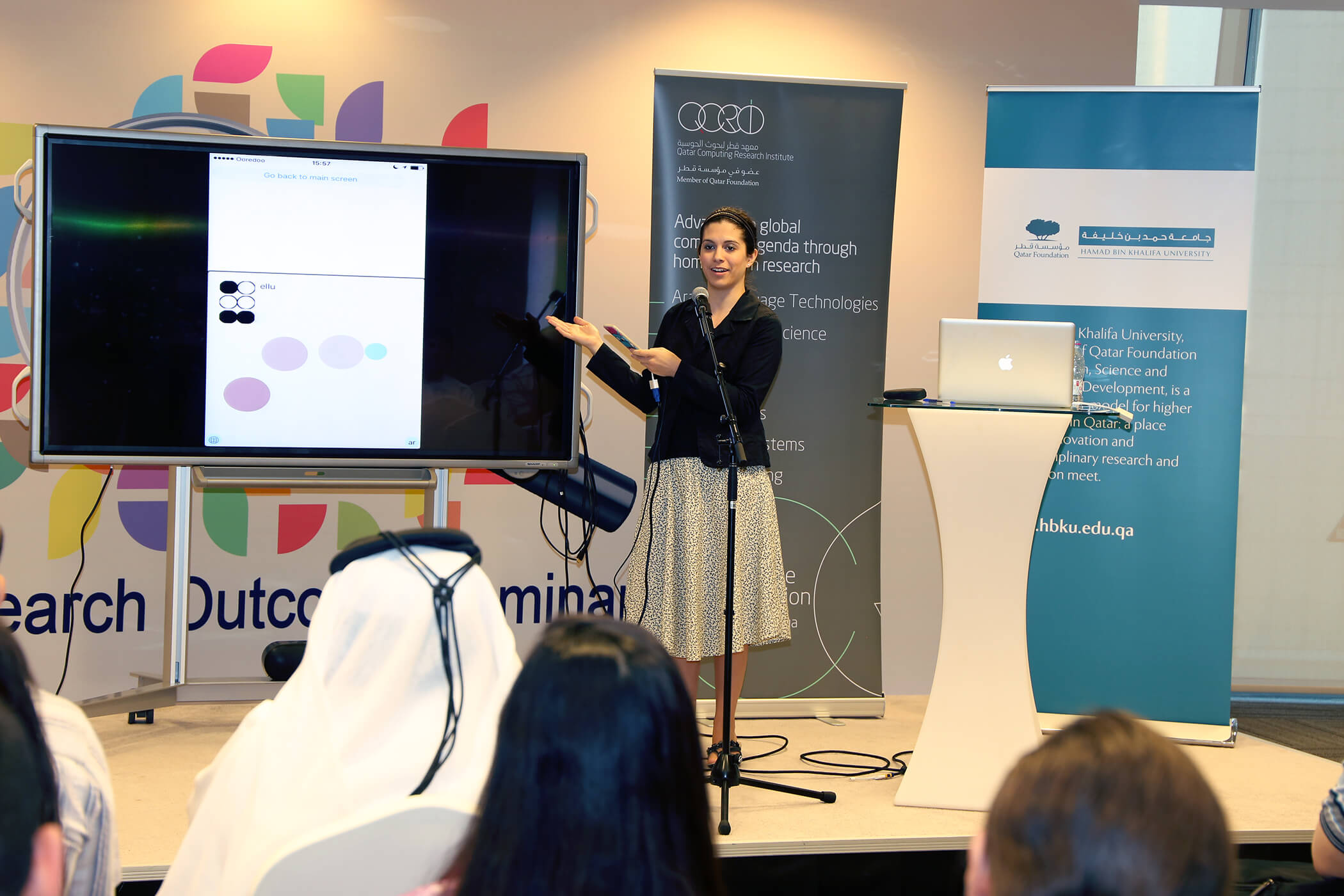
The Qatar Computing Research Institute (QCRI), one of Hamad Bin Khalifa University (HBKU) three specialized national research institutes, has developed a custom keyboard for iOS that enables eyes-free, one-handed typing based on Braille and is suitable for both Arabic-speaking and English-speaking users. The BrailleEasy keyboard was launched by QCRI on Thursday November 12th, alongside representatives of Qatar Social and Cultural Center for the Blind (QSCCB), Al Noor Institute for the Blind, and MADA (Qatar Assistive Technology Center), each of which played an important role in the development of the application. The app helps the visually impaired type quickly on touch-screen devices, a process that can otherwise be very cumbersome and slow.
In general, touch-screen devices, such as smartphones, create many inconveniences for the visually impaired. Although operating systems offer basic accessibility options that help them navigate through menus on devices, typing still remains very slow. Since the end of 2014, iOS has offered a Braille-like keyboard that can speed up typing considerably. However, it requires users to type with both hands.
HBKU’s QCRI have developed a custom keyboard that combines the comfort of one-handed typing with the speed of two-handed Braille-like typing. It is based on the original two-handed Braille writing system but has been transformed to enable one-handed typing, which results in a more comfortable use of a handheld device. With a simple adaption of transforming two-handed Brailling into two gestures, users can quickly learn how to use the BrailleEasy keyboard.
“Smartphones and increasingly smartwatches are widely used in our day-to-day communication, which mostly is text based. For sighted people these devices are easy to use, for the blind this is not the case. Developing this Brailling app in close collaboration with the local community has been a very rewarding experience,” commented Dr. Stephan Vogel, Research Director of Arabic Research Technologies at QCRI, on the launch of the application.
Barbara Šepić, the main developer of the app, added: “Since it has primarily been developed for visually impaired users, the keyboard completely discards any kind of keys and even allows hand movements while typing. The keyboard also offers error correction.”
“This application has been developed thanks to QCRI’s interest in collaborating with organizations for the blind and in particular we are very happy that they reached out to us,” said Faisal Moh. Al Kooheji, Chairman of QSCCB. “It will be very useful for blind users in Qatar, but also for blind people around the world. It’s particularly important for those blind people who only have the use of one hand, as they would otherwise have been unable to communicate using touchscreen technology.”
For users not accustomed to typing Braille or simply want to practice the use of the keyboard, a standalone application, the BrailleEasy-Tutor, offers instructions to master this new kind of typing. “This is such a novel idea. It’s a real accomplishment - there is no other application that allows you to use one hand to write Braille in one language, let alone two languages. I’m so proud that this has been developed in the Arab world,” commented Ikram Ahmed, from QSCCB, after demonstrating the new technology at Thursday’s launch.
The current version of BrailleEasy and its tutoring application run on iOS 8.0 or higher, are fully compatible with VoiceOver (Apple’s accessibility support for visually impaired), and already support English and Arabic.
Dr. Ahmed Elmagarmid, Executive Director at QCRI, highlighted the value of such research, saying: “This type of research and its associated outcomes speak directly to what I am continually asking our researchers. Namely ‘How are we truly making a difference?’ and ‘Why does what we do matter?’ BrailleEasy responds directly to these questions by enabling visually-impaired people to connect more easily, and in a richer way, with society and their environment.”
QCRI tackles large-scale computing challenges that address national priorities for growth and development. Its multidisciplinary computing research is relevant to the needs of Qatar, the wider Arab region, and the world. The Institute performs cutting-edge research in areas such as Arabic language technologies, social computing, data analytics, distributed systems, cyber security and computational science and engineering.





